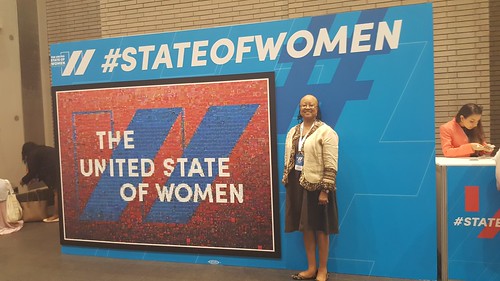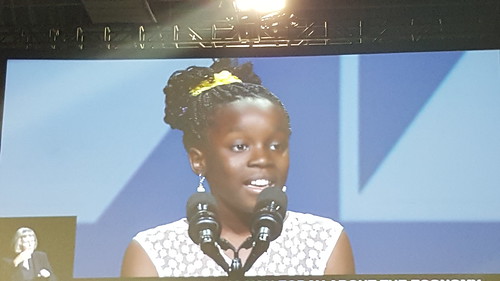
We are entering a new era of information openness and transparency. Open data has the potential to spur economic innovation and social transformation. Focusing just on economic impacts, in 2013, for example, the consulting firm McKinsey estimated the possible global value of open data to be over $3 trillion per year. A study commissioned by Omidyar Network has likewise calculated that open data could result in an extra $13 trillion over five years in the output of G20 nations.
These impacts illustrate why it is important that we encourage people of every age to invest in science, technology, engineering, and math (STEM) education. For example, the White House initiative on Equal Futures Partnership, aims to open more doors to high-quality education and high-paying career opportunities for women and girls in the STEM disciplines, fields in which they are currently underrepresented. To support this effort, Federal science and technology agencies, private corporations, and academic institutions are taking steps to collect better data on women and girls in STEM fields, expand STEM mentoring opportunities, encourage research-driven teaching practices, and increase access to online STEM-skill training.
USDA supports this effort through its participation in the STEMConnector Million Women Mentor program and hosting the USDA Open Data STEAM (Science Technology Engineering Agriculture and Math) Summer Camp (which began its second year July 11th).
It's an exciting time to be exploring the ways new datasets, new techniques, and new scientists could be deployed to "make the world a better place.” We have to build with the end in mind. When we tap into the social issue expertise that already exists in many mission-driven organizations like USDA, there is a powerful opportunity to create solutions to make real change. On June 14-15, I was able to participate in the White House Summit on The United State of Women. This summit, convened by the White House, focused on six pillar topics: economic empowerment, health and wellness, educational opportunity, violence against women, entrepreneurship and innovation and leadership and civic engagement. This forum provided an opportunity for members of the Council for Women and Girls to talk about the data collected on these topics over the past seven and a half years from federal, state/local and corporate information.
The data gathered enabled the presenters to share the outcomes for: 1) Violence Against Women (how we can better prevent it on campus and at home, in the U.S, and abroad and inform law enforcement); 2) Health and Wellness (looking at health coverage and costs, preventative care, pregnancy, etc.); 3) Economic Empowerment (discussing equal pay and paid leave, as well as childcare and diversity); 4) Entrepreneurship and Innovation (supporting female entrepreneurs with access to capital and increasing markets); 5) Access to STEM (Science Technology Engineering and Math) and Educational Opportunity (covering education for girls and women particularly in STEM, from early childhood to college); 6) Leadership and Civic Engagement (furthering women’s roles in corporations, academia, the media and the public sector).
One of the speakers was Mikaila Ulmer, Founder and CEO of Me & the Bees Lemonade. This articulate 11 year old said that when she was four years old she was stung not once, but twice by bees in one week. Because this experience left her extremely fearful of bees, she decided to overcome her distress by doing research and gathered data on bees. Mikaila was able to use USDA pollinator data that USDA has made available to the public through data.gov as well as on the USDA pollinator webpage. It was during her research when Mikaila learned that it was possible for bees to become extinct. For Mikaila, her enterprise is an environmental and social mission. She donates a portion of the profits from the sale of her lemonade to local and international organizations that are trying to save the honey bees. Honey bees pollinate more than $15 billion of crops each year, which is about one-third of American food groups, including cherries and apples.
We look forward to learning about more projects, such as Mikaila’s, that use open data in the future, a future that includes using data to solve problems and create opportunities.

